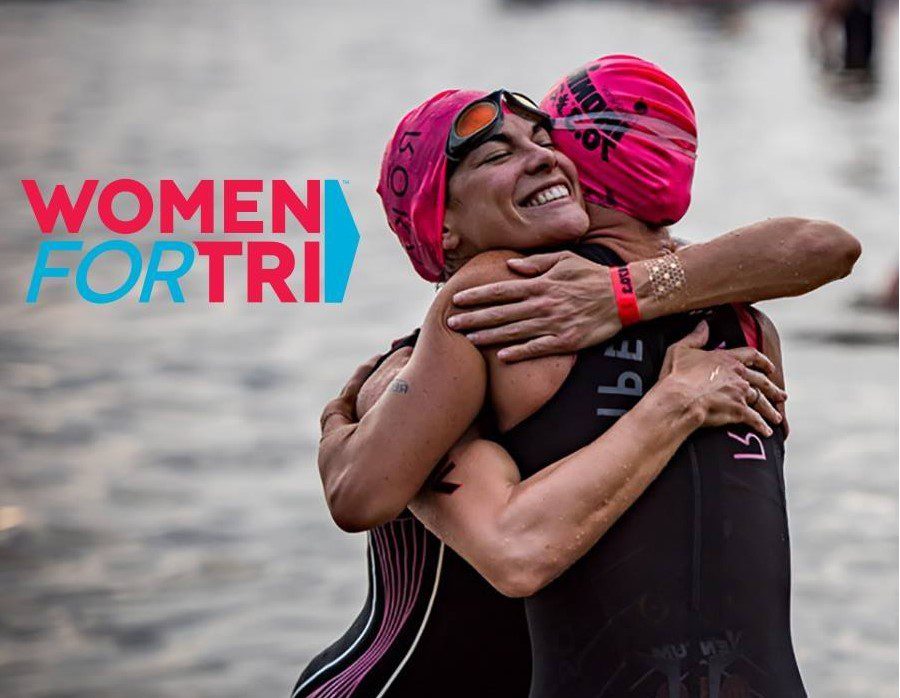Ironman closes down comments and posts on Women For Tri Facebook Page
After thousands of members leave the Facebook group, Ironman suspends all activity on the Women For Tri page.

Ironman has suspended activity on its Women For Tri Facebook page – “all posting and commenting activity will be turned off” – in response to disputes over posts about #blacklivesmatter.
Ironman’s response to the protests and discussions about violence against Black people and systemic racism within all walks of our lives has received a lot of criticism, which was especially highlighted by a dispute that erupted on the company’s Women For Tri Facebook page over the last week.
With protests erupting around the world after George Floyd was killed by a Minneapolis police officer, some athletes posted on the Women For Tri group (which included over 60,000 members at the time) some of their own personal experiences and their thoughts about the Black Lives Matter movement. Moderators of the page took down those posts, citing that the posts were “too political.”
“Today, on a closed Facebook group owned by Ironman, in which over 50 thousand women have found solace in community as they join the sport and become triathletes, the moderators have shut down posts about #blacklivesmatter because they are deemed “too political,” Sara Gross, the founder and head of Live Feisty Media wrote on her Facebook page on June 4. “And now I sit stunned on my sofa wondering what kind of sport I just spent an entire career supporting. I know I could have been a better advocate for folks of colour over the years. I own my part in this problem. But we have to do better. We just do.”
Adding to the frustration for many members of the Women For Tri group was that comments seen to be on the opposite side of the issue weren’t removed from the site.
“However, while those posts and comments were deleted, members of the group noted some posts and comments discounting or belittling the Black Lives Matter movement were allowed to remain intact—despite assertions that the reason the initial posts had been deleted was because they were unrelated to triathlon or were “too political,” Susan Lacke reported in a story on Triathlete.com.
Related: White cyclists (and triathletes) we must do better
Ironman didn’t take part in #BlackOutTuesday, but did post a statement at 8:30 pm on Friday June 5, acknowledging that there was a lot of pressure being brought on the company to make a statement:
“The past few days have unfolded to the steady drumbeat of “you have to say something” coming from employees, athletes, communities, and partners,” Ironman CEO Andrew Messick said in the statement. “I have been open about my reluctance to join the chorus because at its most fundamental core, Ironman is focused on action, not words. And until we were ready to begin to discuss tangible things, talk is just talk.”
In the statement Ironman announced acknowledged that less than one per cent of the athletes who compete in Ironman events in the United States and Canada are Black. “Our initial goal is to support clubs and organizations focused on welcoming black athletes to our sport and to increase participation five-fold within the next five years,” Messick wrote. “We will create an Advisory Committee for the Race for Change program to help guide our thinking and our actions to ensure that we put the resources to the best and highest use. We encourage anyone who wants to participate to reach out to us.
“We will make an initial pledge of $1 million to fund this initiative,” Messick continued. “We are concurrently starting a Diversity and Inclusiveness Committee within our Company to provide a voice to our workforce and develop ways to become a more inclusive organization.”
Despite that statement many members of the Women For Tri group remained frustrated.
According to Lacke: “A mass exodus followed, with more than 4,000 women departing Women for Tri. Some formed or joined their own groups, like Women Who Tri For Justice (as of publication, the group has more than 2,200 members).”
On June 11 Ironman announced that it was placing the page “on pause.”
Gross and Olympic and Ironman athlete Sarah True addressed the issues during their “If We Were Riding Podcast” earlier this week.
“This is a symptom of a grander systemic problem within Ironman,” Gross said in a follow-up interview today. “Ironman needs to do a systemic review of the entire organization. They need to talk to everyone who is in a position of power and find out what their biases are. We all have biases, it’s a matter of acknowledging them with humility, then listening and moving forward.”
The members of the Women For Triathlon group aren’t the only ones who feel Ironman’s response was both late and inadequate.
“Ironman (World Triathlon Corporation), the flagship company of the sport, skipped #BlackOutTuesday,” David Sievers wrote on medium.com. “It waited until Friday, June 5, at 8:30 p.m. ET to post a statement — two hours after NFL chairman Roger Goodell, who has led a protracted 4-year campaign against players kneeling during the national anthem in support of Black lives, was led kicking and screaming to say something. To date, Ironman has not shared its supposed commitment to Black lives on its homepage, email list, and other social media accounts.
